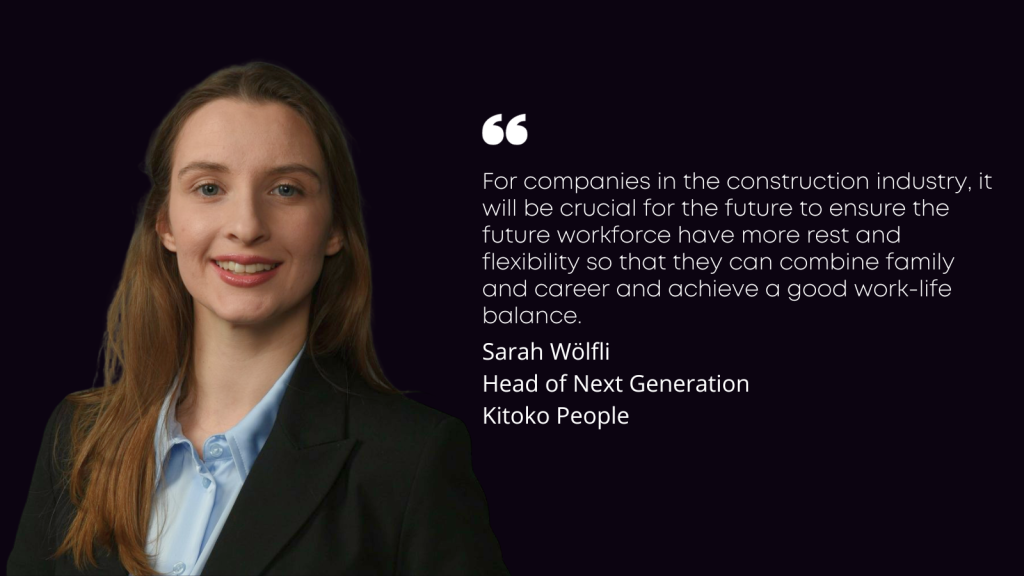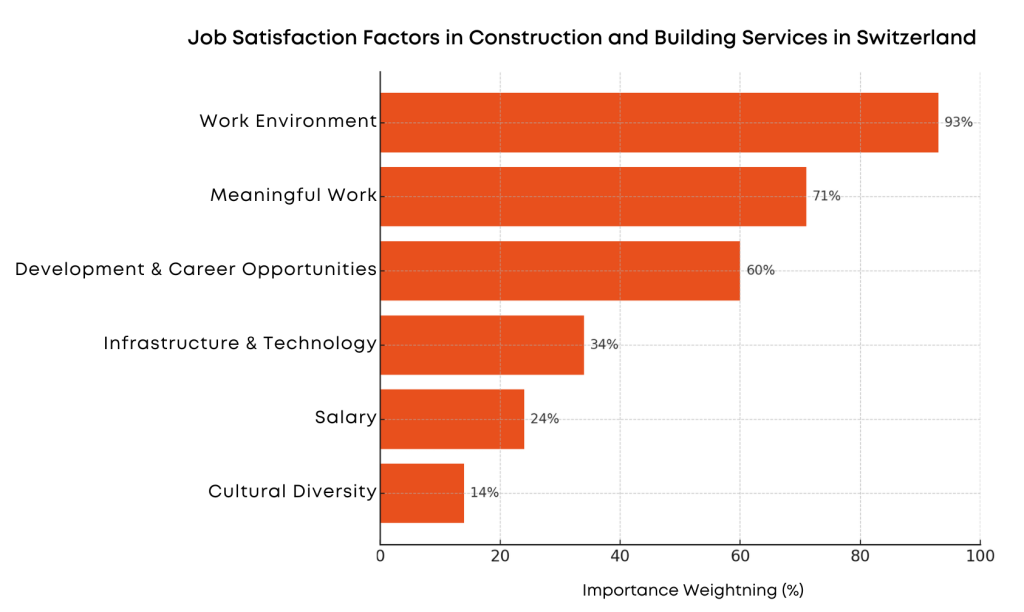The effects of the shortage of skilled workers in the construction industry are manifold, from delays in construction projects to rising costs due to increased competition for qualified workers.
The construction industry faces significant challenges due to the shortage of skilled workers. This situation leads to project delays and increased costs, affecting the competitiveness and attractiveness of the sector. Let’s examine the key aspects of this problem:
- Skilled Labor Shortage: Caused by demographic changes and slow progress in digitization and automation.
- Industry Perception: The physically demanding nature of work and seasonal employment opportunities discourage young people.
- Importance of Work Environment: For Generation Z, a positive work environment is crucial to job satisfaction.
- Need to Adapt: Change in recruitment and retention strategies to meet the preferences of the new generation.
This makes it all the more important to invest in culture and employer attractiveness as well as in working conditions and career opportunities as well as the topic of sustainability. We asked the Gen Z in the construction industry and these were the most important findings:
Work Environment (High Importance):
- For the future workforce in the construction industry, a positive work environment is crucial, with a 93% weighting in job satisfaction. This demographic values a setting where they feel respected, supported, and part of a team. They seek a culture that promotes safety, well-being, and balance between work and personal life.
- A great work environment in construction could mean providing a space where employees can learn and grow, have clear communication channels, and see the impact of their work. It also includes attention to physical comfort on job sites, ensuring safety protocols are followed, and providing modern amenities and tools.

Low Importance:
- Cultural diversity are not among the top priorities for Gen Z in this sector, with only a 14% weighting in job satisfaction. While still valued, these are not the primary factors Gen Z workers are looking for in their jobs.
- This may be because Gen Z workers are focusing more on their direct personal impact of their work and development opportunities rather than broader organizational initiatives.

The chart summarizes the findings of our in-depth research on job satisfaction in the construction and building services industry in Switzerland. It reveals that workers highly value a positive work environment, while the search for meaningful work and opportunities for career development are also important. Aspects such as infrastructure and technology, salary and cultural diversity, while contributing to satisfaction, are considered less decisive.
To attract and retain Gen Z talent in the construction industry the following points need to be considered:
As a practical example to address the training and retention of young construction talent, companies can assign skilled mentors to apprentices, conduct regular evaluations to monitor their progress, and offer them a variety of career opportunities. In addition, it is beneficial to develop career workshops tailored to their personal skills and interests, thus encouraging their continued professional development and commitment to the company and thus generation company retention. It’s crucial to maintain a professional and respectful communication environment within the construction industry to support the development of young talent.
Our studies reveals a significant shift in Gen Z’s values, prioritizing purposeful work, positive environments, and growth. This shift is especially pertinent in construction and services, shaped by sector-specific factors. It poses challenges and opportunities in talent management and work environment adaptation.
At Kitoko People, we help to understand, develop and retain the future workforce. Interested? Contact us or subscribe to our newsletter.
Sources:
Swiss Skills Study in Cooperation with Kitoko People
Surveys from various universities of Applied Sciences and higher technical schools
“Neue Fricktaler Zeitung, 2023. ‘Die Baubranche ist stärker betroffen’. Available in: https://www.nfz.ch/die-baubranche-ist-staerker-betroffen.”




